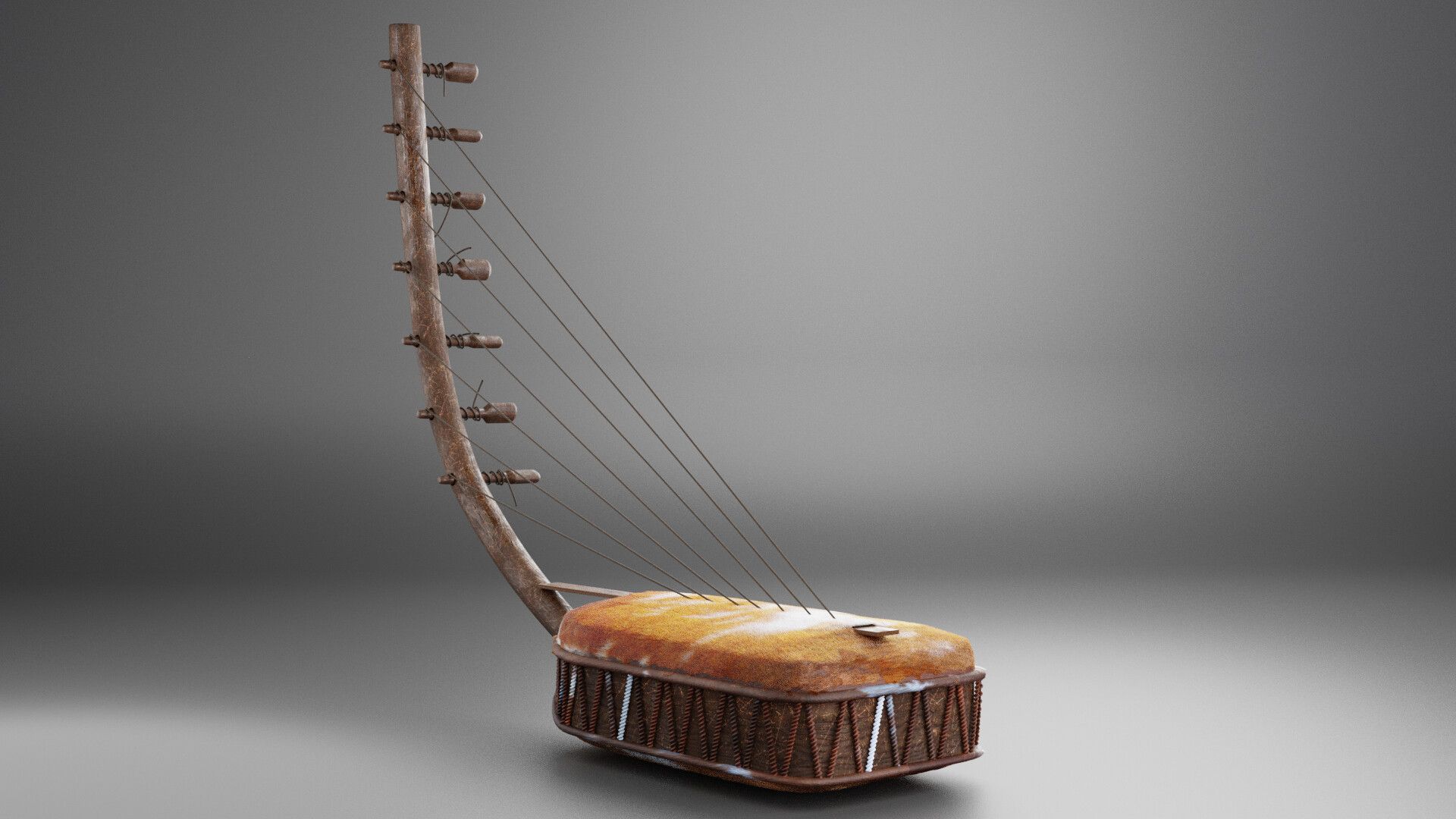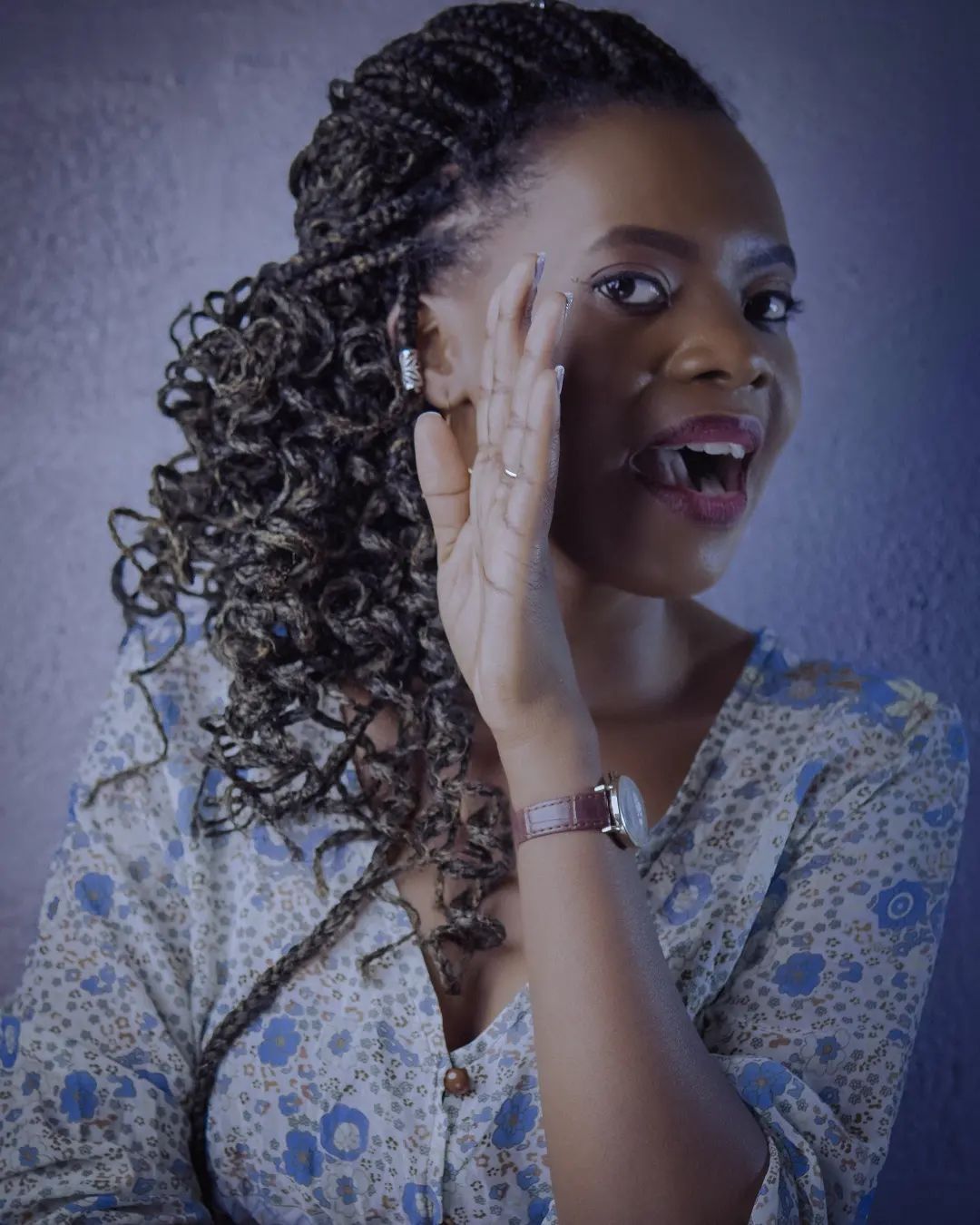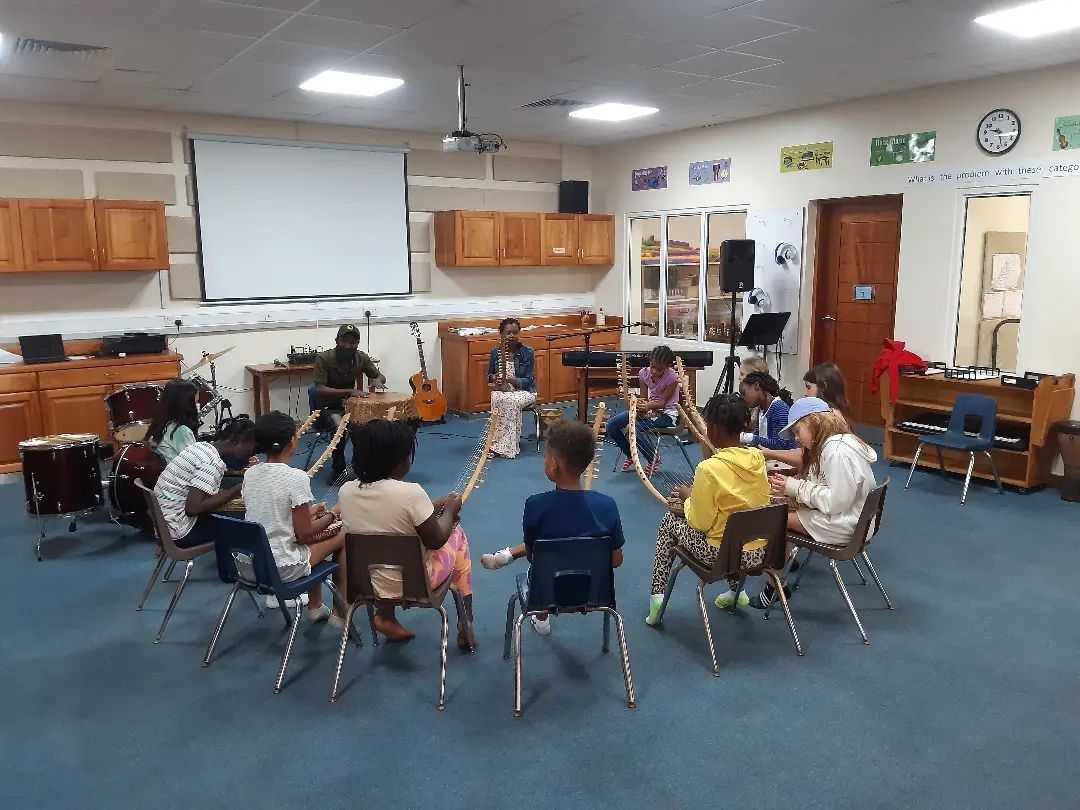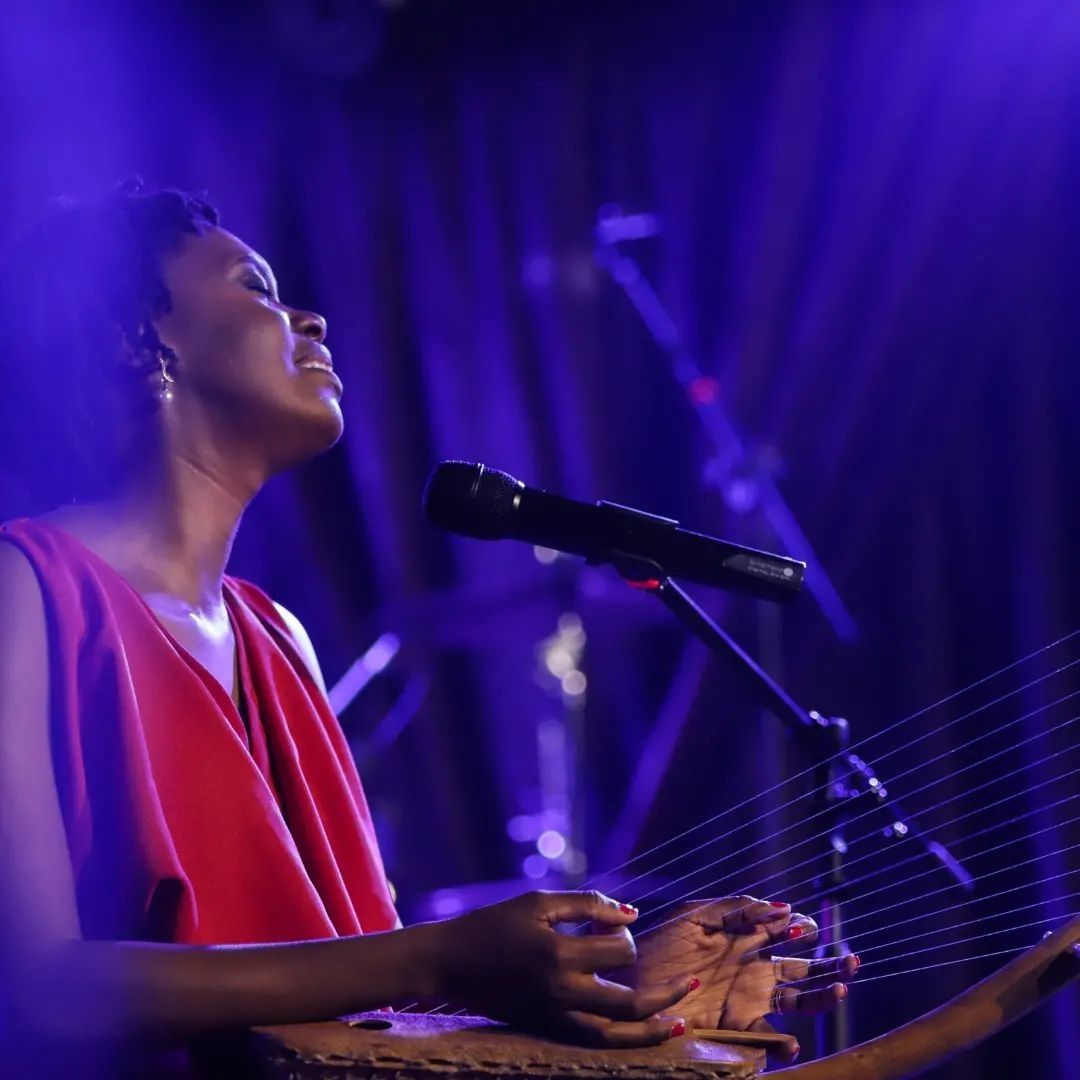It is a great time to be alive in Uganda! With an array of budding, out of the box musicians that are springing up all over the country, it is these artists that are shaping the music culture and setting a standard of quality, musicality, authenticity, and culture for generations to come.
One of these game changers is Price Kwagala Kwagala, commonly known as Price Love. Price is a very special artist of interest because she uses the a’dungu in her music and performances. The a'dungu is a stringed muscle instrument of the Alur people of north-western Uganda. It is an arched harp of varying dimensions, ranging from seven to ten strings or more.
The instrument is made of a hollowed-out slab of wood, which is covered by two pieces of leather, woven together in the center. The upper piece of leather functions as a soundboard and a wooden rib supports it, serving as a structure to secure the strings to the soundboard. A curved wooden neck, containing a tuning peg for each note, is inserted into the end of the instrument's body. The strings run diagonally from the tuning pegs in the neck to the rib in the center of the body.

A photo of an Adungu. Source: https://www.artstation.com / Kennedy Akampurira
It is this sound that sets Price's music apart and adds a fresh feel to it. As she gracefully plucks the strings of her beloved instrument while on stage, you cannot help but feel calm and at peace while Price performs. It is quite an experience if you ask me.
I first heard about Price in 2013 when she, together with a group of other artists, held a concert dubbed Listen at the National Theatre. That same year, Price held her first concert at Kampala Serena Hotel titled, September to Remember.
One of the things that made Price stand out, was that she was pursuing a degree in Music at the Africa Institute of Music. Not something ordinary at a time when for one's parents to pay for their university education, you had to pursue a course that would equate to something, for example, a Bachelor's in Law, Journalism, or Medicine. I could not help but wonder who her parents were.
Price was not only studying music, but also launching her very first concert in her early twenties. Her music was like nothing I had heard before. It sounded rich and different but at the same time really familiar. She spoke with pride about who we are and encouraged us to be ourselves. Everything about that album was uplifting.
I had the privilege to interview and hold a conversation with Price Love about her musical journey and plans ahead. Here is what she had to say
Andariya: Who is Price Love?
Price Love: My name is Price Kwagala Kalanje but mostly known as Price Love. Love is the translation of Kwagala in English. I am a musician, wife, Christian, music teacher, and voice coach. Generally, I am a lover of God and everything music.
Andariya: How did you start out, what kind of music do you do and why?
Price Love: I would like to think that I do music for the soul. Music that brings healing. I identify a lot with Jazz, world music, and Christian contemporary music. That is why I refer to my music as soulful. I started singing when I was five years old. I started playing the adungu (a local stringed instrument) around the age of 21 or 22. I had my first song recorded during my form four vacation at the age of eighteen. Everything else, I started to learn and grow as I matured in my skill and gifting.

Price Love, the Adungu Princess. Source: Sidney Kalanje
Andariya: What inspires you to do what you do?
Price Love: I do what I do to bring healing to the soul. I feel like there's a lot of noise all over. The world is telling you this, people are telling you that and I felt I needed to bring some kind of soothing sound that would calm nerves. Music that would get people listening and thinking. I also love lyrics because they speak a lot more to me. I am very deliberate about the lyrics I write in my music.
Andariya: Tell us a bit about your education.
Price Love: I enrolled at the Africa Institute of Music where I did a diploma in music for two years and later, a bachelor's in the same field for three years. Initially, my parents were not exactly thrilled with my choice of course because at the time, musicians had a bad reputation. However, a few months in, they changed their minds and gave me their full support.
Andariya: What are your high points as an artist?
Price Love: It is getting to see people enjoy what I do because it has been a long time coming. Whenever I see people singing along to the music I play or have written, the covers that I have done, it makes me glow. Also producing music with my special instrument the adungu. Every time I play it, my heart is excited.

Price Love teaching a group of students how to play the adungu. Source: Price Love
Andariya: What are some of the challenges that you've faced?
Price Love: There have been quite a number, but all of them around one thing; ignorance or lack of knowledge about the music business. For most of the beginning of my musical journey, I did so many things for free. I did not know how to charge clients and basically had no knowledge on the industry so I ended up getting myself into a lot of trouble. I am wiser now and I believe I am making better decisions based on the knowledge I have acquired. I am grateful for school, and for opportunities to learn because nothing is strange to me anymore. There is still a lot to learn but I am definitely not where I started.
Andariya: What does the future look like for you?
Price Love: I see a generation passing on the things that I have taught them. I also see myself being reproduced from generation to generation. I envision myself standing on different stages around the world in all the countries of the world with the message of hope and healing. And of course, I anticipate receiving accolades and impacting lives through the music that I make. Nothing would give me gratitude more than knowing that all the struggle was indeed worthwhile.
Andariya: Any notable performances and collaborations?
Price Love: I got to play for the president of Uganda at the State House in 2013 and I had a number of performances while studying in Korea in 2015. My very first concert was also a memorable one for me. I have also had the opportunity to perform at the National Prayer Breakfast a number of times. I feel like every opportunity I get to perform is memorable for me because there is something that makes each one special.
I have collaborated with the Africa Children's choir on a number of projects. my second album titled "I Believe I Can". I have worked with producers Walter Wa and Wake both in the studio and at his recent concert, The Mwana Weika Experience. I have also done music with Gagamagoo (another Ugandan artist) called Anampanguza.

Price Love performing on stage while playing her adungu. Source: Marteena Photography
Andariya: Tell us about your just concluded concert and the heart of it.
Price Love: First of all, looking back at my first concert which was held in 2013. I am so glad it happened then, because there is so much that I have learnt between then and my recent concert. I have accumulated a lot of knowledge. I look back and ask myself what I could have done better and I could not exchange that learning experience for anything in the world. For my recent concert in August 2022, Price Love in Concert, I had the opportunity to collaborate with another musician. The idea behind it was getting two different artists who do different genres of music and bring them together, in order for them to learn from and sharpen each other. It was quite a great learning experience.
Conclusion:
The most widely spread and played instruments in Africa are the drum, the xylophone, the mbira, rattles and shakers. The one-string musical bow, played all over the continent but now nearly abandoned, was once responsible for all the vocal scales that are used today in African music.
Musical instruments in Africa are not only used for making music, they are also used to communicate to both man and spirit, translating and emitting daily experiences and events. Modern African music is evolving. Categories are splitting in half, niche groups and artists are attracting larger followings, and momentum is coming from the places you least expect.
Modern performers like Price Love and getting adept with the adungu and skillfully using it to produce music that has been able to move continents. With the vision and enthusiasm that Price Love has, she will definitely make a bigger impact on the African and global scene in a few years’ time and it is encouraging that the younger generation is now more interested in learning how to play the instrument.
